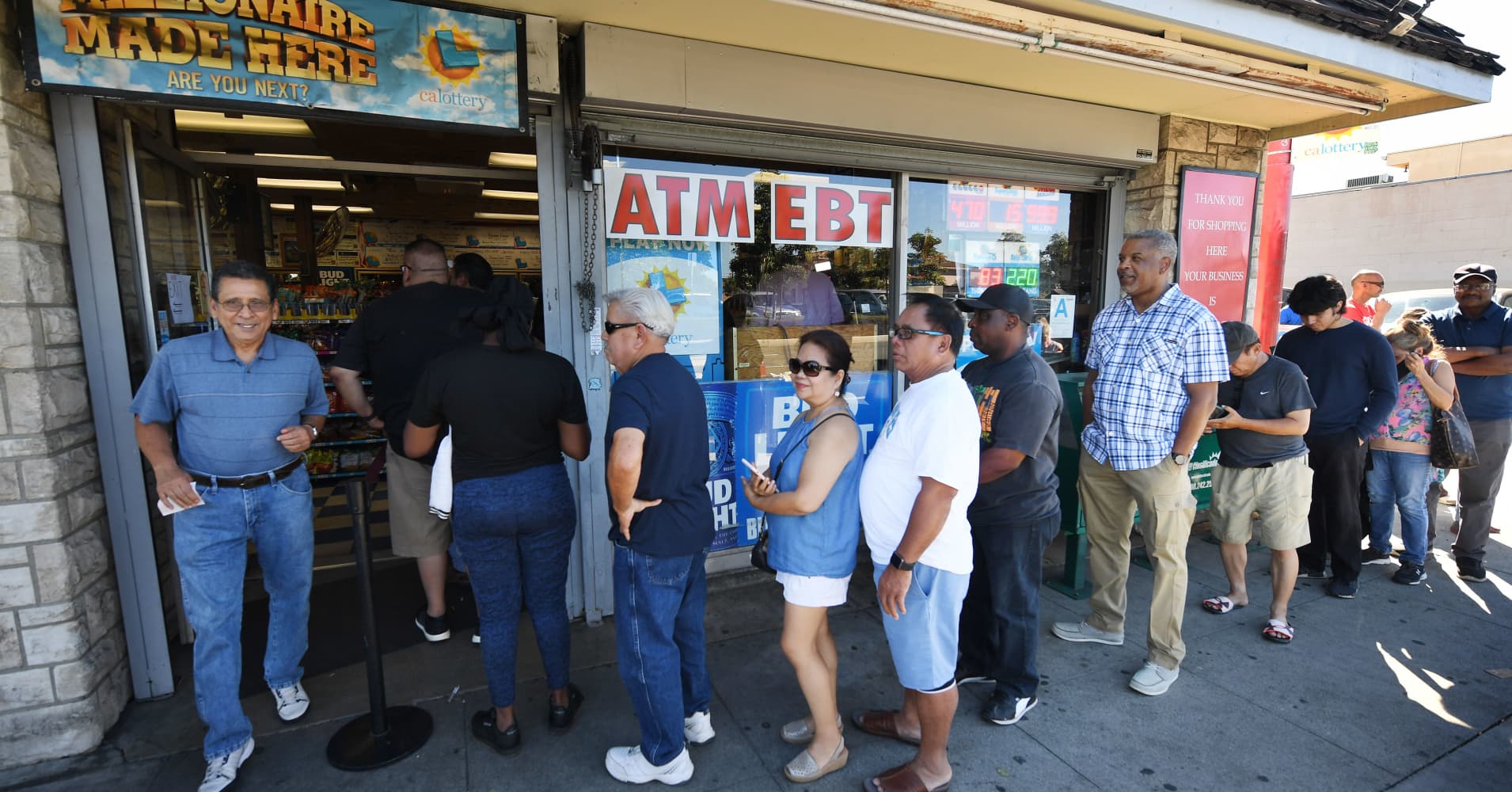
After no one hit all winning numbers in Friday night's Mega Millions drawing, the jackpot has surged to a staggering $1.6 billion — the largest prize in U.S. lottery history.
And at some point, someone will get really lucky. As in really, really lucky.
Your chance of winning the Mega Millions jackpot is pretty dismal: 1 in 302.6 million. Prior to last October, when changes were made to the game, it was 1 in 258.9 million.
With the odds of winning stacked against players, no one has hit the jackpot since July when a group of coworkers in California won $543 million.
The Powerball jackpot, meanwhile, has climbed to $470 million. Your chance of winning it is 1 in 292 million.
Play both lotteries? The chance of winning both is at least 1 in 88 quadrillion (that's 88 followed by 15 zeros). The next drawings are Saturday night for Powerball and Tuesday night for Mega Millions.
If you happen to beat the astronomical odds, here are some expert tips to avoid making a wrong move with your win right out of the gate.
Make sure you have a safe place to store your winning ticket, like a lockbox or safe.
Also, the standard advice is to sign the back of your ticket. However, you might first want to check the laws of the state where you purchased the ticket.
Some states allow you to claim anonymously. Other states don't. Yet some might allow you claim the prize via a trust as a way to shield your identity from the public. If the ticket bears your name and not the trust's name, it could cause issues if you try to go that route.
To make sure you understand your options, it's worthwhile turning to experienced professionals before doing much of anything.
You should assemble a team of experts with experience in helping navigate lottery wins. That should include an attorney, a financial advisor and tax advisor.
"Make sure you're comfortable around each team member, and make sure they have the proper accreditation for their field," said certified financial planner Jim Shagawat, president of Windfall Wealth Advisors in Paramus, New Jersey. "You need a team around you to guard against being taken advantage of."
Someone on the team will need to serve as your gatekeeper. That is, they can field requests from moochers or scammers or even friends and family members who want a piece of your windfall.
You might be so excited that your first instinct is to share your news far and wide. Bad move, experts say.
One of the best ways to protect your newfound wealth is to avoid letting too many people know about it. Of course, this can be difficult if you cannot claim your prize anonymously. Even if you can, though, it's still best to avoid sharing your exciting news with too many people.
"Obviously it may be impossible to keep this from immediate family, but news like this travels quickly," said Jason Kurland, a partner at Rivkin Radler, a law firm in Uniondale, New York. "Try to keep the circle of people who know as small as possible."
Past prize winners have discovered the hard way that long-lost friends and relatives can come out of the woodwork looking for loans or handouts. Scammers, too, have a way of zeroing in on lottery winners.
You get to choose between taking your winnings as an annuity spread out over three decades or as a lump sum all at once.
For Mega Millions, the immediate cash option is $904 million. For Powerball, its $268.6 million.
Many experts recommend taking the lump sum, because if it's managed and invested properly, you could end up with more money over time than if you took payments spread out over several decades.
However, it's important to evaluate your own situation.
"If you know you have trouble with compulsive spending or know that certain family members will be after your money, you may want to go the annuity route," Shagawat said.
More from Personal Finance:
How to retire early – very early
Here are the best and worst states for taxes
People in this state are at the highest risk for identity theft
Before you start planning how to spend the hundreds of millions you win, you should know a big chunk of it will go to federal and state coffers.
Regardless of whether you go with the annuity or cash option, the federal government will shave 24 percent off the amount before it reaches you. That withholding would reduce Mega Millions' cash option by $217 million to $687 million and Powerball's by $64.5 million to $204.1 million. You also should anticipate owing more to the IRS at tax time.
On top of the federal withholding, you'll owe state taxes on the money unless you live where lottery wins are untaxed. For states that do take a piece, the rate ranges from a high of 8.82 percent in New York to a low of 2.9 percent in North Dakota, according to lottery site USAMega.com.
For both the Powerball and Mega Millions jackpots, winners get anywhere from three or six months to one year to claim their prize, depending on where the winning ticket was purchased. In other words, there's no need to rush over to lottery headquarters the day you win.
Experts recommend taking as much time as you need.
"The time between the day you win the lottery and the day you claim is your last period of normalcy," Kurland said.
via IFTTT
No comments:
Post a Comment